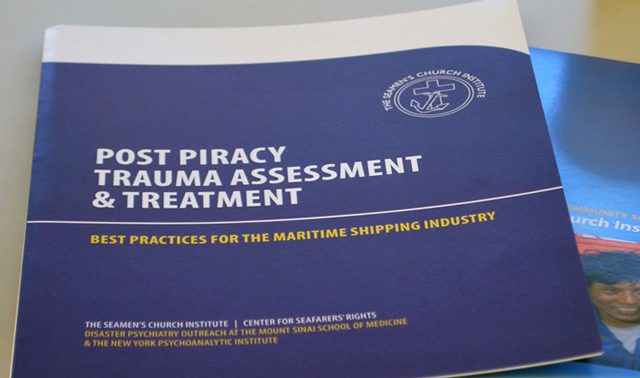Trump Tariffs on Russia’s Oil Buyers Bring Economic, Political Risks
From punishing Brazil to trying to curb imports of fentanyl, U.S. President Donald Trump has wielded the threat of tariffs as an all-purpose foreign policy weapon.

What happens to mariners after a pirate attack?
Millions have been spent, new weapons developed, and new procedures written with the goal of ending piracy off Somalia. Further, piracy preoccupies senior management with concerns beyond the immediate welfare of their crews, including cargo delays, the risk of escalating violence, complex ransom negotiations, and the potential for adverse publicity. Trained response to a piracy incident promotes crew safety and protection in the short term and strengthened worker morale, company identity and positive publicity in the long term. Progress is slowly moving forward on all these issues but one question remains unanswered; What is being done by those most affected by piracy…. the captured mariners themselves?
Robbery, hostage taking, or sailing through piracy zones can cause these mariners to suffer from health and physiological issues. So, in conjunction with the Disaster Psychiatry Outreach (DPO) at the Mount Sinai School of Medicine and the New York Psychoanalytic Society, the Seamen’s Church Institute (SCI) has developed a multi-year project exploring the clinical assessment and treatment of piracy attack survivors. SCI’s study of the impact of piracy on seafarers and their families is the first of its kind in the maritime industry.
SCI originally undertook the study of seafarer medical and mental health treatment in response to an ICMA 2008 resolution calling for humanitarian response to the increasing number of hostage situations. SCI responded by forging partnerships with Disaster Psychiatry and Psychoanalytic institutes to tackle the treatment dilemmas associated with multinational crews and both their short and long term medical needs after the unique stress of being held hostage.

In a speech this summer to the UN Convention on the Law of the Sea Douglas B. Stevenson, Director of Seafarers Rights for SCI said; “More disturbing than the high numbers of pirate attacks and hijackings, are the reports that pirates off the Coast of Somalia have become much more violent this year. Seafarers who were released from captivity by pirates this year reported that they had been physically and psychologically abused.” Stevenson continued “…he full extent of how seafarers are treated by pirates while in captivity and piracy’s effects on seafarers before, during, or after an attack is not well known.”
Leading SCI’s efforts to understand these effects is clinical psychologist Dr. Michael Garfinkle who believes the first step is interviewing seafarers who have been captured by pirates. To this end, Garfinkle and his team have conducted over 100 confidential interviews with piracy victims. What they found was a need to place emphasis on balancing the seafarer’s right to medical privacy alongside the ship owner’s need to evaluate fitness for continuing duty when the seafarer returns to work. They also found a clear need for immediate medical triage when crews are liberated and follow-up care once the seafarer returns home—occasionally to parts of the world that are underserved by medical and mental health resources.
The initial findings of the study have been developed by SCI into Guidelines On Caring For Seafarers, a document that recommends ways to help prepare mariners for the potentially traumatic experience of transiting zones of piracy. The Guidelines also suggest ways to incorporate assessment methods to determine the need for intervention, and ways for follow-up care to be designed and implemented.
“For centuries, seafarers have been guaranteed medical care for conditions occurring while in service to the ship,” says Garfinkle in the report findings. “Post piracy treatment serves as a 21st-century extension of this basic service.”
The guidelines are available on SCI’s website but they continue to be a work in progress. “Given the unacceptable human costs of piracy to seafarers, much more needs to be done not only to eradicate piracy but also to care for the seafarers who have been affected by piracy.” says Stevenson

Sign up for gCaptain’s newsletter and never miss an update

Subscribe to gCaptain Daily and stay informed with the latest global maritime and offshore news


Stay informed with the latest maritime and offshore news, delivered daily straight to your inbox
Essential news coupled with the finest maritime content sourced from across the globe.
Sign Up